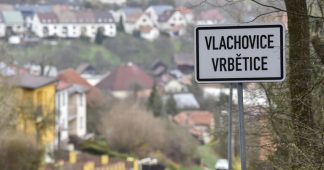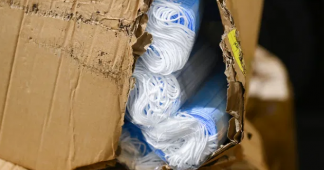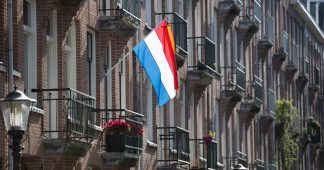By Dagmar Švendová
29 Oct 2021
At the Czech Communist Party’s (Communist Party of Bohemia and Moravia – KSČM) 23 October congress a new leadership was elected with Kateřina Konečná, a current MEP, as new chairwoman. The interview was conducted right after the congress by transform! europe’s Dagmar Švendová.
The recent parliamentary elections in the Czech Republic resulted in the failure of the left, both social democrats (ČSSD) and communist (KSČM), with neither party now represented in the national parliament. The KSČM received only 3.6%, achieving about half of the 2017 results. At that time the party had 7.76 % and 15 seats and concluded a deal with Andrej Babiš (ANO movement) and the ČSSD to tolerate (in fact support) Babiš’ minority government. The tolerance agreement was in place until 13 April this year, giving the communists their greatest influence on domestic governance since the 1989 revolution.
Dagmar Švendová: First of all, congratulations on your election as the new chairwoman of the KSČM. In the parliamentary elections, neither parties of the broad left were elected to parliament. This is unique in the history of the Czech Republic. What does this mean for the country and the left?
Kateřina Konečná: The Czech Republic will be completely in the hands of a right-wing coalition government, and that makes me very worried. There is a strong need to invest in people and our society, but we will have austerity supporters in power. Yes, it’s very likely that the left is paying for its mistakes, but this defeat could not come at a worse time. Our country will need unity, solidarity, and bold decisions, and since we will have only conservatives in government, none of that will happen.
What do you see as the causes of the KSČM’s bad result ?
I believe the problem clearly lay in the coalition with the Babiš government. We have become unreadable to our voters and therefore we lost them. We didn’t explain what we did right, and we did many things wrong. We were not seen as an equal partner and that made us look weak.
What potential does the KSČM have despite this defeat?
Not that long ago, Czech left parties had 50% of all votes. Those people did not disappear. They just feel forgotten. We must connect with them again. That is of course easy to say, and hard to do, but it must be done. The right-wing government will ve a visibly bad example, while we will go the way of cooperation and solidarity. The pandemic taught us how essential that is. There is a a sense of the need to support those who protected us in times of crisis, but the right only knows how to cut budgets and eliminate services. I believe Czech voters will soon remember why the right cannot be trusted, but we will have to be clear in saying what our alternative is.
What allies outside the KSČM do you see?
The new government-in-making will create a lot of insecurity and struggles for many. Then our allies will present themselves. The left is not only about parties, but also about movements and concrete issues. We must choose our topics wisely and redeem ourselves through them, showing once again that our party cares.
Can the left in Europe provide any help?
We will need all the help we can get. Especially from countries whose experiences resemble our own. We are not first left party to be outside of Parliament, and we must seek inspiration from those who managed to backer-enter their own parliaments. We still believe it is our duty to protect the citizens of our country, and we must find a way to do so.
Thank you for the interview.
Konečná is the first woman in the leadership of the KSČM and the third chairperson since 1993. She has been a member of the party since 2005 and sought the party leadership three years ago and was elected vice-chair but resigned in April 2021 in opposition to Vojtěch Filip remaining in the party-leadership.
In 2014, she became a Member of the European Parliament. Konečná gained her political experience as a deputy for the Moravian-Silesian Region in the lower house of parliament. At the age of 21, she became the youngest MP and defended her mandate for three more terms.
Published at www.transform-network.net
We remind our readers that publication of articles on our site does not mean that we agree with what is written. Our policy is to publish anything which we consider of interest, so as to assist our readers in forming their opinions. Sometimes we even publish articles with which we totally disagree, since we believe it is important for our readers to be informed on as wide a spectrum of views as possible.











